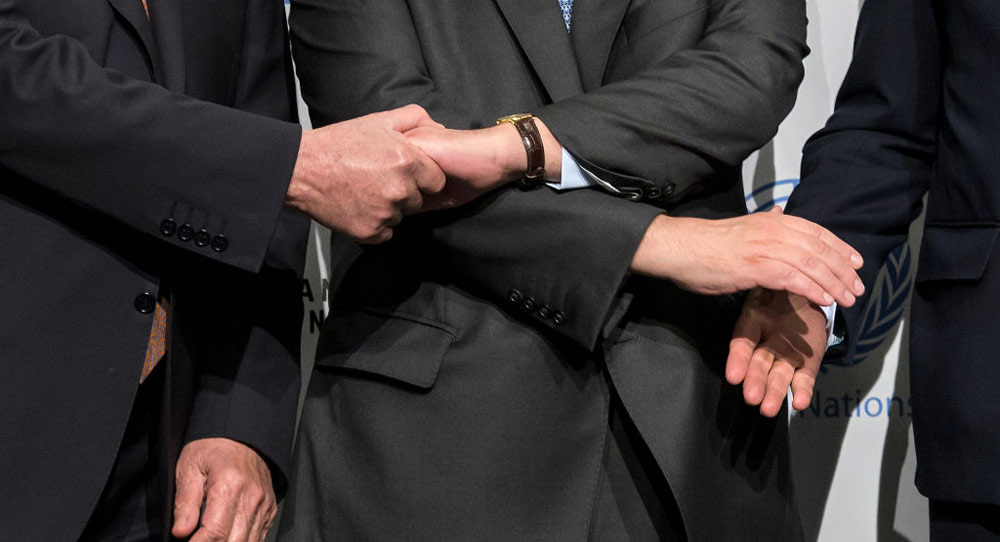The stakes are high at the talks in the Swiss resort of Crans-Montana on resolving the conflict on the divided island of Cyprus.
Mediators who want to extract every ounce of compromise from parties to a conflict have a habit of telling them “This is your best and last chance” and “It’s now or never.” In this case, they may not be bluffing. The Swiss talks, which started on June 28, have nowhere else to go. They are the culmination of a three-year process between two leaders who have a good rapport, Greek Cypriot Nicos Anastasiades and Turkish Cypriot Mustafa Akıncı. They are almost certainly the final effort to push for a bicommunal bizonal solution to the Cyprus problem, to reunify the island in a loose federation.
The current talks may also be the last serious effort by the UN to mediate a solution. The UN has been in Cyprus since 1964, and the new Secretary General António Guterres is letting it be known that if the Cypriots cannot do a deal, then the UN will have other, bigger claims on its resources and the UN Peacekeeping Force in Cyprus (UNFICYP) mission may be wound down. As a UN official in Cyprus put it, in a situation where almost all violence has disappeared, “we won’t do beach-keeping.”
The UN is also playing the Trump card, pointing out to the Cypriots the low priority the conflict represents for the new U.S. administration and reminding them that if President Donald Trump and his team follow through on their threat to reduce UN contributions drastically, UNFICYP may be cut back in any case.
It is a serious process, with agreement said to be close in most areas, with the important exception of security. Disagreement over the future status of the 35,000 Turkish troops who intervened on the island in 1974 and are regarded by Greek Cypriots as occupiers and by Turkish Cypriots as protectors may sink the whole deal. This really is a high-wire act, because as almost everyone told me when I visited Cyprus in mid-June, there is no plan B.
The process could fail in one of two ways. There may be no agreement in Switzerland, in which case everyone goes home and the process is declared dead. Or a deal may be struck, put to both communities in a referendum, as happened with the Annan Plan in 2004, and is rejected by one or both sides. (In 2004, the Turkish Cypriots backed the peace plan and the Greek Cypriots voted against.)
If the process does fail, it could get messy. Since the Green Line separating the two communities was opened in 2003, there has been enormous progress in normalizing relations across the divide and mitigating conflict, all within a framework of EU integration. People-to-people contacts, business cooperation, and EU engagement in the north of Cyprus have all been done under the premise that Turkish Cypriots voted for reunification in 2004 and these activities further that goal.
As someone used to the black-and-white rhetoric of the conflicts of the Caucasus (Abkhazia, Nagorny Karabakh, and South Ossetia), I found it heartening in Cyprus to see a different dynamic with a functioning process, respectful communication between the parties, lots of contacts at a societal level, and shared economic activity.
Yet the Greek Cypriots are almost as tough and legalistic as their post-Soviet counterparts when it comes to rejecting any international step that looks to be giving legitimacy to Turkish Cypriot institutions outside this framework, even if these are soft organizations such as sports teams or universities.
For their part, the Turkish Cypriots are disappointed with the EU—even as most of them still see it as their sole path out of isolation and toward rejoining the world. In 2004, the European Council pledged to “put an end to the isolation of the Turkish Cypriot community” with a promise of direct trade (not via the South), new regulations to facilitate trade across the Green Line, and a financial-aid package.
Almost every Turkish Cypriot I spoke to in June faulted the EU for failing to live up to these promises and resist pressure from Greek Cypriots to dilute them. No direct trade links were opened up with the north, and the Green Line regulations still do not allow for much commercial traffic, such as the passage of trucks. Financial aid has been delivered, but it is dwarfed by the aid and investment flooding in from the Turkish Cypriots’ traditional patron state, Turkey. If Turkey is still the motherland, the EU is still a stepmother. In the absence of a big EU presence, the influence of modern Turkey is steadily growing in northern Cyprus, with the privatization of businesses and an (unwelcome to many) program of mosque building.
So if the deal collapses and the UN pulls back, several bad scenarios could fill the vacuum. The current UN-administered 112-mile buffer zone could become an effective hard border, threatening new incidents of violence. Turkey could step up its de facto takeover of northern Cyprus, perhaps even annexing it de jure.
Above all, there is the question of what kind of engagement with the Turkish Cypriots the Greek Cypriots will allow if the project of reunification is declared dead.
This is where the EU above all needs a plan B. That plan should reaffirm the commitments on de-isolation the union made in 2004—and more. It should rest on the principle that engagement and Europeanization are good for their own sake, not just in the service of a particular agreement.
Almost everyone wants the current peace talks in Switzerland to succeed and deliver a federated Cyprus. The most likely alternative—that Turkish Cyprus turns into a de facto province of Turkey—is an outcome that almost no one wants but should focus minds in Brussels.
Carnegie Europe is grateful to the Government Offices of Sweden and the Robert Bosch Stiftung for their financial support of this publication.






